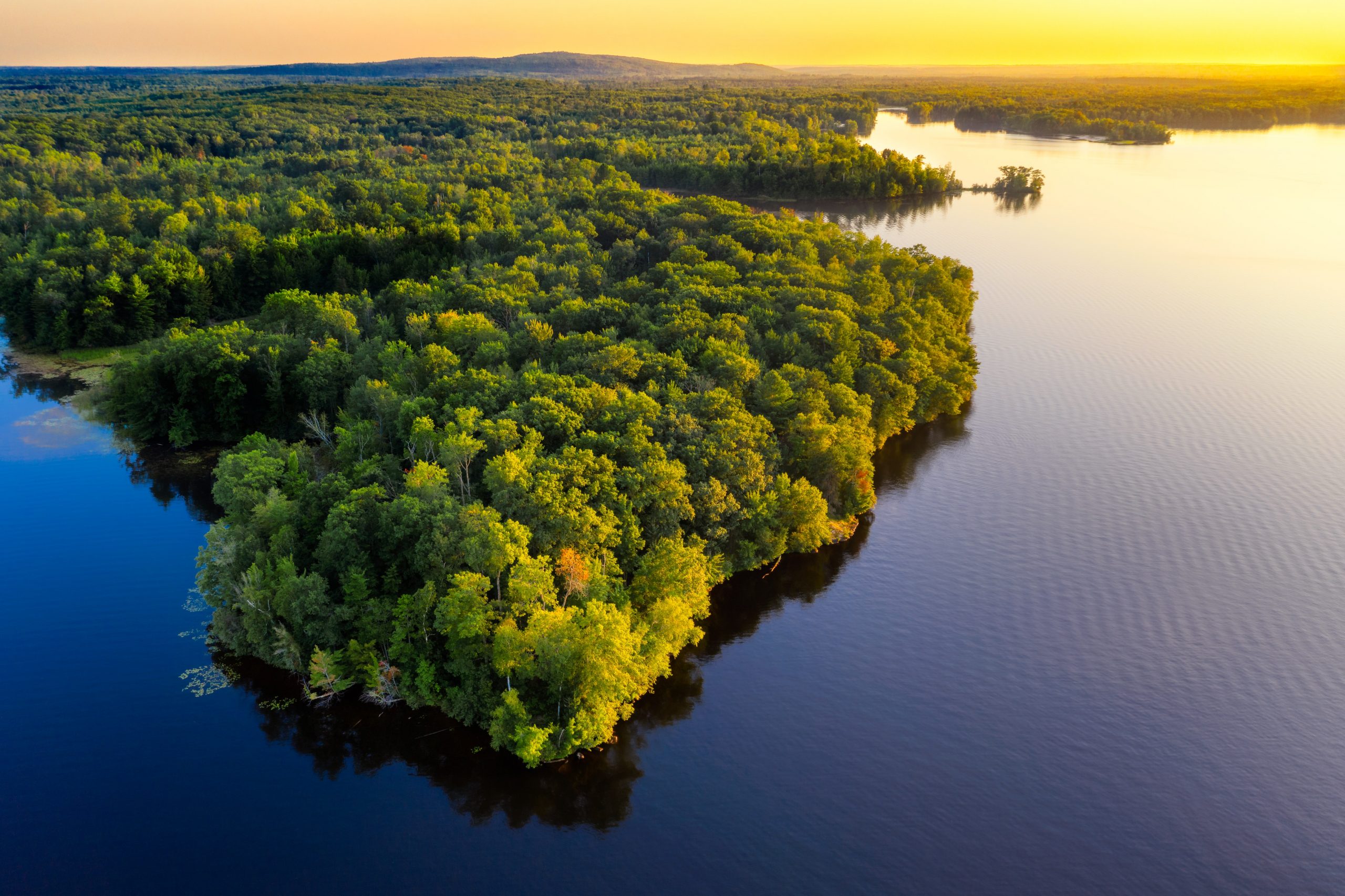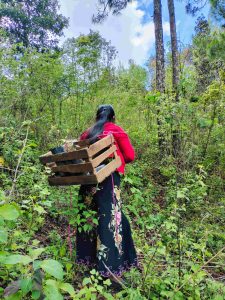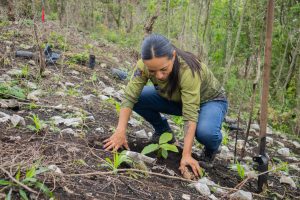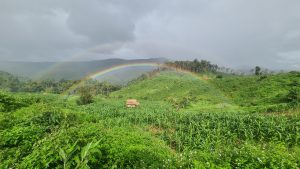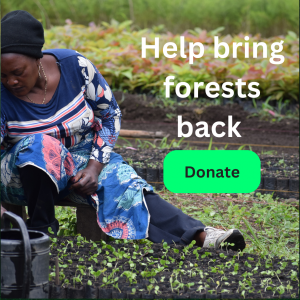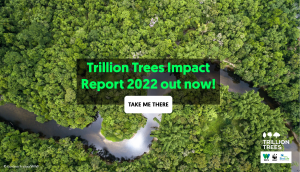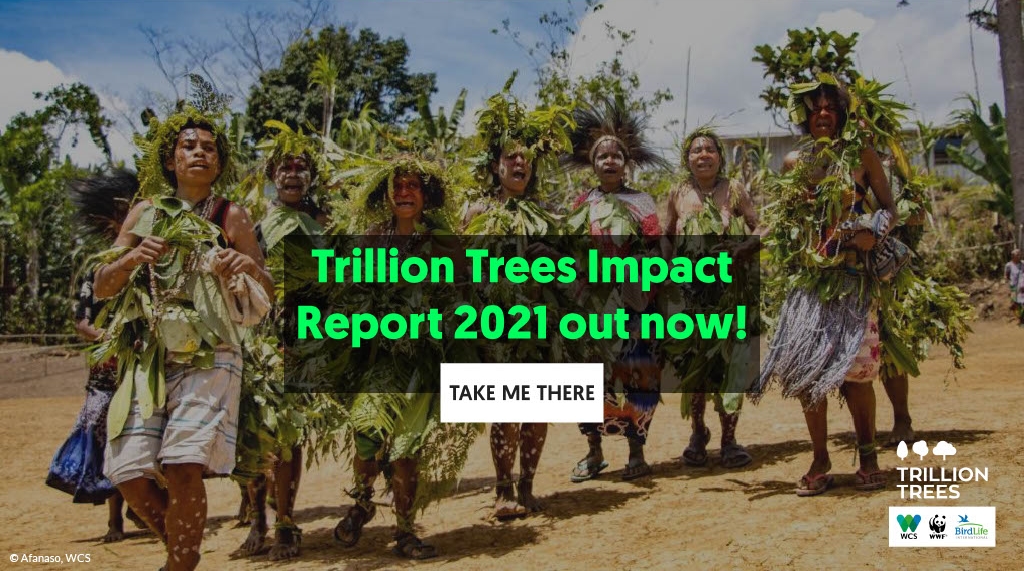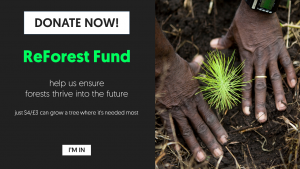Imagine this. It’s 2050, our world looks drastically different from how it did a few decades ago. After years of concerted effort, forest loss and degradation has been reversed, the planet has been reforested on a massive scale, and the positive results are undeniable. Thriving ecosystems have emerged, with forests often seeing tree species grow that are more adapted to a changing climate, and with people around the world now enjoying the benefits of a healthier planet.
At the heart of this transformation was a renewed commitment in the early 2020s that saw an increase in us protecting and restoring forests. Communities, governments, and businesses joined forces, as part of the UN Decade on Ecosystem Restoration, to recognise the urgency of the climate crisis. Together they took bold steps to address the crisis and its impacts, for example removing deforestation from our food supply chains, actively restoring degraded land at the ‘forest frontier’, and reconnecting forest patches and restoring forest in the right way.
Improved health
For starters, our air is cleaner now than it has been for generations. The forests that have been allowed to regrow and have been restored in the right way now act as giant air purifiers, removing carbon dioxide and other pollutants from the atmosphere. This not only combats climate change but has led to a decrease in respiratory illnesses and other health problems in people caused by pollution.
Communities are now spending more time together around urban trees and forests which has reduced stress, lowered blood pressure and improved the mood of millions.Taking time to recharge outside means people argue less these days.
A generation of children have grown up with a greater connection to green space meaning improvements in cognitive, emotional, and physical health. Many children are able to concentrate longer in class, leading to increased levels of performance and success.
Equitable access to trees
More people now have access to forests than ever before, even in cities, creating more equitable societies, with everyone benefiting from trees and green spaces. Many urban areas now benefit from ‘food forests’ which have helped to tackle food insecurity and promote urban agriculture.
That’s because in the last 30 years, there has been a significant increase in the number of trees and green spaces in urban and suburban areas. This not only led to the improvement of the overall health and well-being of the people living in those communities, but there was a reduction in air and noise pollution, the trees have helped to cool hot cities and more space has been created for recreation and relaxation.
The increased availability of trees and green spaces has also brought economic benefits to communities, such as reduced energy costs for cooling and heating buildings.
Wildlife is thriving
Our reforested planet is home to a wide array of wildlife. Many of the world's most charismatic animals were on the brink of extinction in the 2020s, but thanks to the recognition of the need to protect and restore their habitat they are now thriving again. From the majestic tiger to the playful orangutan, animals of all kinds are thriving in the newly restored habitats. They may have moved, but the tree species that provided them with food and shelter now grow in these new locations. This reforested planet has helped the diversity of natural wildlife to recover by creating new habitats and increasing the connectivity of existing habitats. This led to the regeneration of natural resources, such as water and soil fertility, allcritical to the survival of many species.
The creation of jobs and opportunities
The reforested planet has created new opportunities for people to connect with nature.. For example ecotourism is a major industry, with people spending more time in wild areas near to where they live and work. Study tours, conferences, outdoor activities and exploration have created jobs and allowed people to experience the beauty of the planet's forests and wildlife, close to home. This has not only provided a boost to local economies, but has also led to greater awareness and appreciation for the natural world. Reforestation has provided a range of green jobs and economic opportunities for local communities, such as sustainable forestry, forest management, agroforestry, and sustainable food production.
Indigenous communities
The forests have secured and brought about many benefits to Indigenous communities, many who have a deep connection to the land and rely on forests for their livelihoods and cultural practices. These communities in the 2020’s often lived in areas that were historically disproportionately affected by deforestation and environmental degradation.
These last decades have seen progress not just in the protection and indeed the reforesting of their lands but also - finally - the world’s recognition of their ancient rights of tenure and stewardship of these vital forest landscapes.
They now see more opportunities, preservation of cultural practices, and the effects of climate change are less. Indigenous communities have led the way in creating a sustainable and equitable future for all people and the planet.
Let’s make this happen…
This vision of a reforested planet can be a reality if all parties across governments, the private sector, NGOs and conservation organisations can work together to commit, and crucially to invest, in forest conservation and restoration - done in the right way and in a way that is sustainable for the long term.
So many of us have the same goal. We in the global trillion trees community believe that we can help create this future where forests thrive, and deliver their benefits to our planet, to the dazzling biodiversity on land, and to better health and well-being of people all over the world.
By Nisreen Elsaim, 1t.org Youth Hub for #GenerationRestoration and Global Shaper &
Dr April Bagwill, Programme Officer, Trillion Trees
The Youth Hub for #GenerationRestoration is a growing and diverse community of almost 100 youth leaders and organizations, with a potential collective reach of 70 million youth worldwide. Co-convened by 1t.org and Global Landscapes Forum - Youth in Landscapes in support of the UN Decade on Ecosystem Restoration, its goals are to inspire, support and mainstream high quality restoration action led by young ecopreneurs and activists.
Trillion Trees is a joint venture between BirdLife International, Wildlife Conservation Society (WCS) and WWF to protect and restore forests all over the world for the benefit of people, nature and climate.

